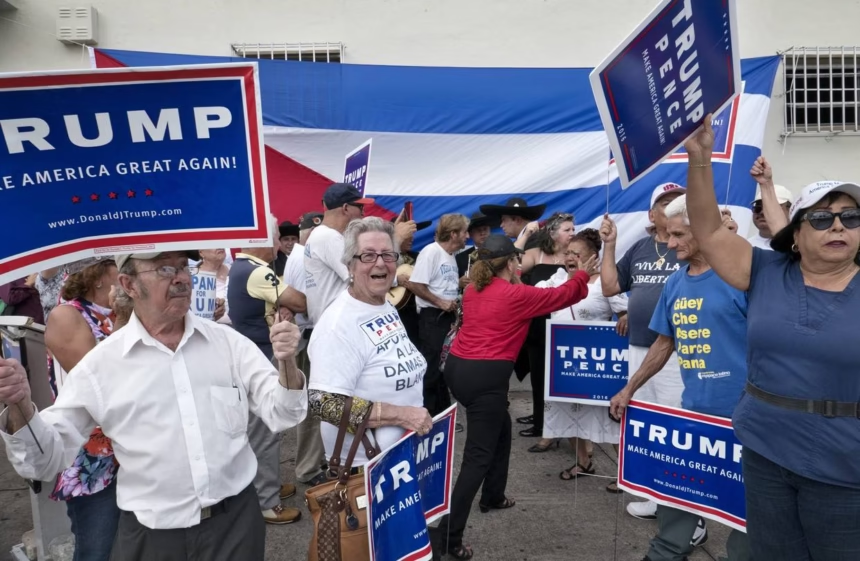Widespread uncertainty has emerged among thousands of humanitarian parole program beneficiaries following the Trump administration’s announcement to discontinue this Biden-era initiative.
Speaking with KTVU Fox San Francisco, Dr. Jorge Duany, the former head of the Cuban Research Institute at Florida International University, offered insights into this policy reversal and its effects on Cuban and Venezuelan communities across America.
“The Cuban American community largely backed President Trump, but now finds itself disillusioned. The prospect of Cubans facing deportation from the United States was unthinkable,” Duany expressed during his appearance on KTVU Fox 2 San Francisco.
The scholar emphasized that this White House decision has significantly impacted a demographic that has traditionally shown strong allegiance to the Republican Party.
A recent Florida International University poll indicated that 68% of Cuban Americans planned to cast their votes for Donald Trump. However, the discontinuation of the humanitarian parole program — which had enabled over 110,000 Cubans to enter the United States legally — has created widespread concern within the community.
Since the Cold War era, Cubans reaching American shores, frequently by boat, received special consideration. The Cuban Adjustment Act of 1966 provided them the opportunity to pursue green card status after residing in the country for one year and one day. This longstanding privilege now seems uncertain.
“Their established rights and privileges are currently under scrutiny,” Duany observed, highlighting that many could potentially become undocumented or face irregular immigration status.
Adding to these worries is the support from some Cuban American congressional representatives, traditionally advocates for these communities, for new deportation policies — particularly targeting those with suspected connections to Cuba’s communist regime. This stance has created a rift in public sentiment.
“While most Cuban Americans support the deportation of individuals linked to the Havana government, many law-abiding residents now face potential expulsion,” Duany explained, noting similar circumstances affecting Venezuelan nationals.
Florida’s city of Doral, in particular, hosts a significant Venezuelan population. The announcement regarding the gradual elimination of their Temporary Protected Status (TPS) has sparked comparable anxiety.
“The Venezuelan community is experiencing deep-seated fear and uncertainty,” Duany stated.
For these expatriates, who frequently express opposition to Nicolás Maduro’s leadership, returning to Venezuela poses significant risks. Like their Cuban counterparts, this development is causing many Venezuelans to reassess their political stance, though the full impact remains unclear.
“Similar to Cubans, numerous Venezuelans are reconsidering their voting preferences,” Duany noted.
Despite strong support for Donald Trump from Cuban and Venezuelan American voters in the previous election, these recent policy changes might weaken this political alliance.
The humanitarian parole program had offered many individuals a path toward stable integration. Its termination, coupled with deportation risks, is being interpreted by segments of these communities as a violation of trust.
Following his White House reinstatement, Donald Trump has prioritized the deportation of immigrants, with a particular focus on those from Central American and Caribbean nations. Notably, Cuban immigrants, who previously enjoyed protection under past administrations, now find themselves among those targeted.
The forthcoming period will be decisive in determining how these policies affect voting patterns and whether Cuban and Venezuelan Americans maintain their support for the current administration.
Source: Interview aired on KTVU Fox San Francisco, May 27, 2025.







